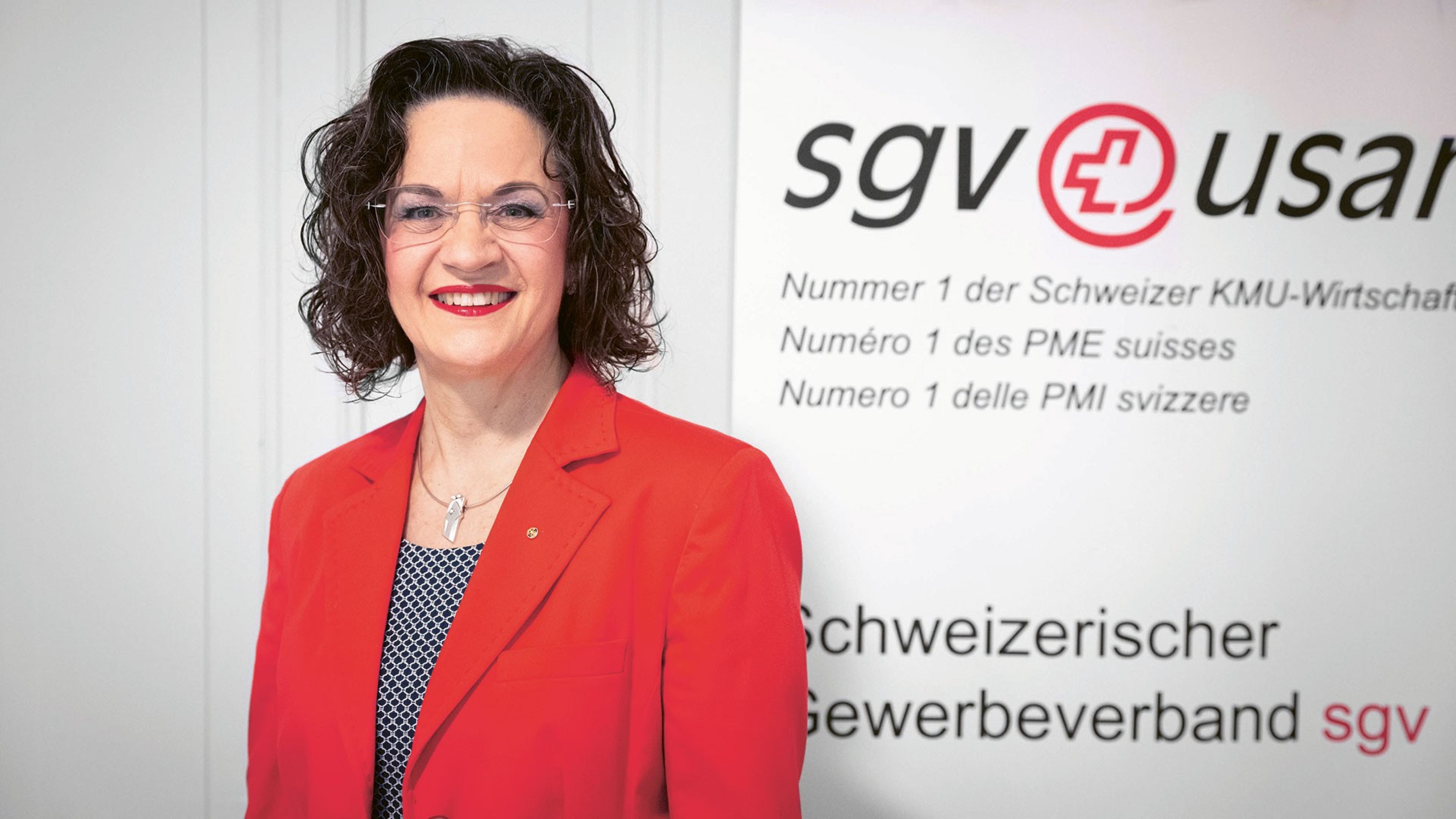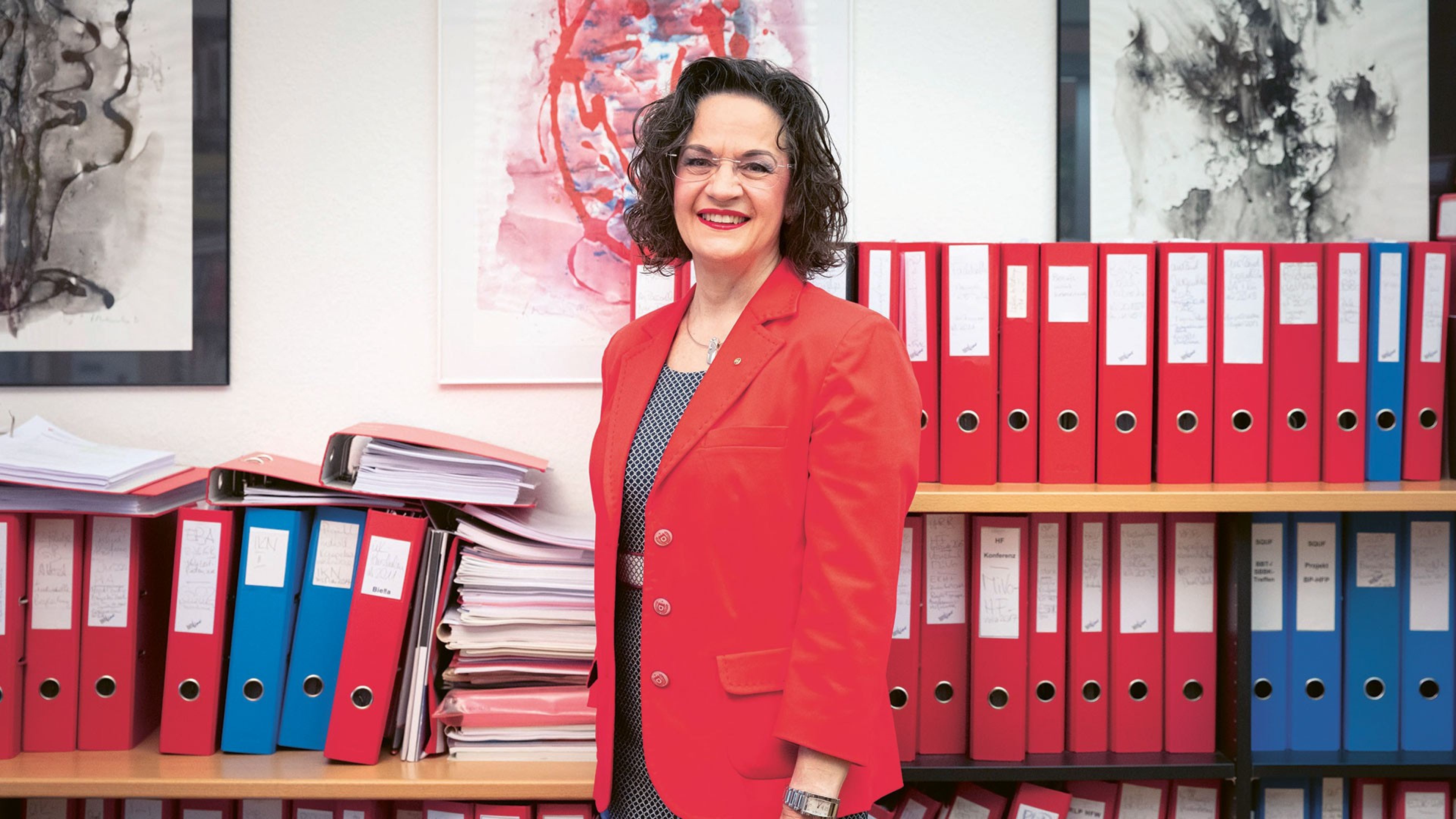Christine Davatz – President of KMU Frauen Schweiz, an SME networking association for women in Switzerland – dealt with the issue of occupational provisions early on. She actively seeks to provide other women with information about this topic. She believes that the terms of occupational pensions should be the same for everyone. And to her, the same rights also mean the same obligations.
Around half of small and medium-sized enterprises (SMEs) clearly believe that women face greater challenges when it comes to providing for retirement. That was the conclusion of a Swiss Life study involving some 300 SMEs. To what extent do you agree with this statement?
Christine Davatz: With the exception of the retirement age – which actually favours women – the Occupational Pensions Act is structured in a gender-neutral way. When there are special challenges, it’s because of special forms of work – such as increased part-time work. Men receive the same conditions when they work part-time. And, generally speaking, both receive the same pay for the same work. So for me, SMEs don’t play a special role when it comes to women’s pension shortfalls.
But we continue to hear that women earn less than men. Is that not true?
For us, the rule is the same pay for the same work. If large companies or administration bodies don’t do this, then there’s only one thing to do: correct it right away. Especially if there are functional descriptions. SMEs often do not have positions that are identical, making comparisons more difficult.
Please accept marketing cookies so you can watch this video. Cookie settings
Swiss Life researches women’s concerns
«The growing participation of women in the labour market, a decreasing gender pay gap and legal changes are slowly but surely reducing the gender pension gap, but they are not eliminating it completely,» says Andreas Christen, Senior Pensions Researcher at Swiss Life, on the pension shortfall experienced by women. Further details can be found here:
It’s important to begin thinking about occupational provisions early on. Are young women interested in this topic?
People – both women and men – generally think about occupational pensions too little and usually too late. This is unfortunate. On the one hand, this may be because of the complexity of the topic. But people also seem to prefer to deal with short-term topics rather than long-term ones. This was an important topic to me early on in life. I first began thinking about it in 1984, when I started my first job.
Does KMU Frauen Schweiz try to provide women with information about their pension situation?
Yes! We started the network in 1994. I would go from association member to association member, with the goal of informing them about our project and motivating them.
The retirement age for women is now 64 years – one year less than it is for men. What do you think about this?
We can’t get around the fact that the retirement age will have to be increased and structured in a gender-neutral manner. Given demographic trends this is the only way to maintain the same level of benefits. As a first step, we should introduce a retirement age of 65 for women. We should then gradually increase the retirement age – by one or two months per calendar year. We’ll probably end up with a retirement age of 67 or 68.

Christine Davatz has been responsible for the education dossier at Schweizerischer Gewerbeverband (svg), a Swiss trade association, for more than 30 years. She joined the organisation after completing her law studies at the University of Basel and becoming licensed as a notary. Among other things, she is the founder and president of KMU Frauen Schweiz, a member of the Swiss University Council and the University of Applied Sciences and Arts Northwestern Switzerland (FHNW). She is a member of the FDP and a captain in the Swiss Army.
Nearly 40% of employees now work part-time. How many of these are women?
On average, 61%. However, this figure is mainly for women who work in small and medium-sized companies. Among self-employed women with no employees, 67% work part-time. Among self-employed women with employees, the proportion working part-time is 44%. Moreover, 83% of women in SMEs work part-time. By contrast, among women employed in management roles at companies with more than 250 employees, only 32% work part-time. As you can see, SMEs, in particular, are more flexible and allow women to work part-time.
Why do you advocate on behalf of women’s concerns?
I feel it is crucial for every little girl to be able to develop and pursue her own interests and abilities. That will enable her to be what she wants to be when she’s a grown woman. That is what I dedicate myself to in my work as an educator with the Swiss trade association “Schweizerischer Gewerbeverband” (svg) – and hopefully we’ve raised our daughter that way as well.
You reconcile family, various commitments, a job and a management role. Are there any tips you’d like to offer women in the working world?
I try to do everything that I do with joy. That automatically gives me energy. And when I have a goal, I pursue that goal relentlessly – until I’ve achieved it. There is no doubt that self-determination contributes to work satisfaction and boosts motivation as well. My work allows me to have a say and to be involved in a lot of different areas. I appreciate this a lot. Sometimes, though, I wish I had a bit more time for myself. I’ll have more free time when I’m retired.
Text: Mélina Zaugg
Image: Killian Kessler



